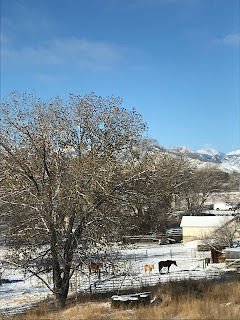I'm at a weekend conference sponsored by my local RWA chapter LERA. We brought in Michael Hauge to teach his Story Mastery. Great stuff. Yesterday was his general seminar, and today a dozen of us are doing an intensive advanced story mastery session where we workshop our concepts with him. I'm super excited because I'm working on SOMETHING TOTALLY NEW.
So new that it's science fiction.
Agent Sarah has already seen the concept and given it the thumbs up, so now I'm just working up the details. With my COLLABORATOR.
There are so many new and exciting things here that I can't wait to share.
At any rate, being science fiction, in a universe we're basically creating whole hog, albeit on the foundation of our own, there's a lot of worldbuilding involved. One interesting challenge is that my heroine is a scientist, but obviously operating at a much more sophisticated level technologically.
I know she's made a mistake in her past. I know the results of the mistake and that it has to do with genetic manipulation. I just need to figure out HOW she might have done it. This will require beefing up my current understanding of genetics and how genes are spliced using modern technology, then extrapolating that to a possible future.
I'll likely do this by going to the current scientific literature, but not the hard core stuff. I'll look for cutting edge research as explained in journals intended for broader consumption, like Nature, Science, or Scientific American. I have an advantage that I'm trained as a scientist, so I know how to read and assimilate that kind of information - but I also know that I'm pretty stale, and I never was an expert in genetics. I won't attempt to read the stuff intended for working scientists because I doubt I could keep up. Certainly not without devoting a lot of attention to it and... I probably don't want to do that.
My favorite way to tackle this sort of thing - the ideal shortcut - is to find someone who is a current expert and picking THEIR brain. There's still no search engine that compares to finding a smart person who knows their field really well and getting them to think about the answer.
So, if anyone knows a cutting-edge genetics researcher... :D















